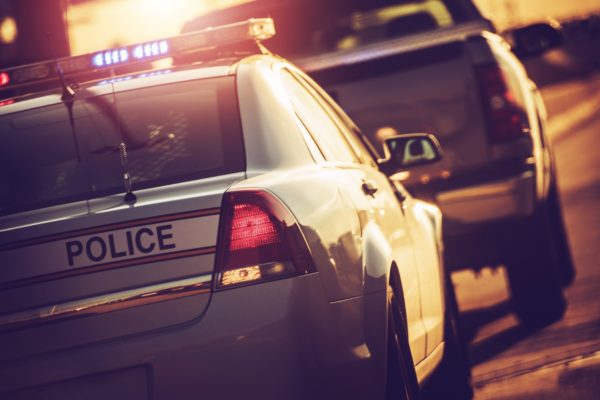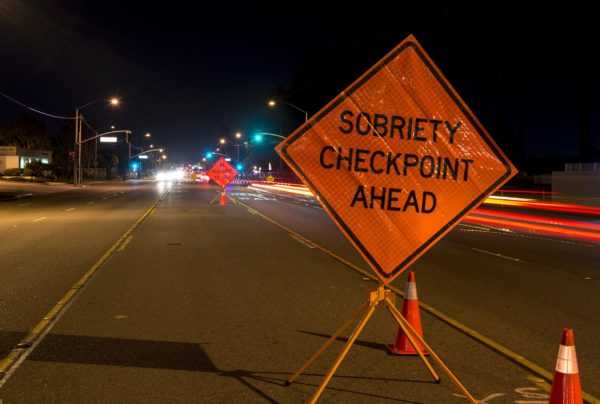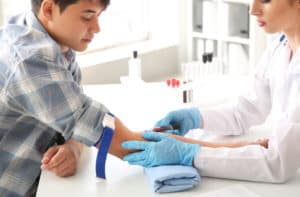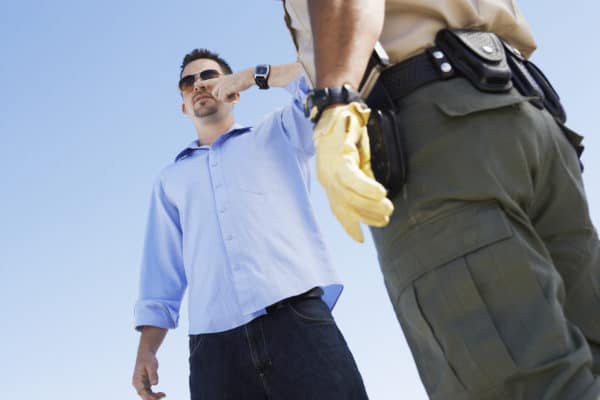
DUI Defenses and Evidence
If you have been accused of driving under the influence of alcohol or drugs, you probably have many questions, but the most pressing question is likely, “is it possible to beat my DUI charges?” While no attorney should ever guarantee the outcome of a case, you’ll be happy to know that, yes, plenty of people can and do successfully fight their drunk driving charges in San Diego County. But this is typically only possible with the help of a skilled lawyer with a thorough knowledge of the best possible DUI defenses.
Successful DUI Defenses
Attorneys can use many different defenses to fight these charges, but DUI case law is very complex. Many DUI defenses are only applicable in a limited number of scenarios. Because what you say to the police could be used as evidence that could negate a good defense, it is vital that you remain silent and never say more than you are legally required to without a lawyer present. If you did speak to the police during a DUI arrest, write down everything you can remember after your release because any small detail may help you build a strong defense.

Challenging Chemical Test Results
One of the main pieces of the state’s evidence in a DUI trial is the chemical test. If you can prove it was improperly performed or that the results were otherwise falsely high, you may weaken the state’s case enough for you to win your case.
One of the most common reasons people get a falsely high breathalyzer result is that they had alcohol in their mouth when they took the breathalyzer. Mouth alcohol commonly occurs due to vomiting or burping, which can result in alcohol in your stomach going back into your mouth, inflating your Breathalyzer results accordingly.
California state law requires law enforcement officers to watch suspects for 15 minutes to ensure this does not happen. But many officers fail to observe suspects this whole time. The entire breath test is compromised if the suspect burps or vomits when the officer looks away. You should tell your lawyer if you noticed this, as many DUI cases are thrown out for this exact reason.
While chemical tests are rarely exempted as evidence, if your case goes to trial, your defense lawyer may be able to question these factors enough to win the jury over, which is why challenging this evidence is one of the most successful DUI strategies.

The Initial Traffic Stop Was Illegal
California DUI laws state that police must have a reasonable suspicion you committed a Vehicle Code violation or are driving impaired before stopping a vehicle. They must also not prolong a detained driver longer than reasonably necessary if they don’t suspect driving under the influence or committing another crime.
If an officer stopped you for an infraction unrelated to your driving and had no cause for reasonable suspicion, he would have no grounds to ask you to take a field sobriety test or breathalyzer. While it can be difficult to successfully argue that the officer had no grounds for reasonable suspicion because so many things meet this legal requirement, people are still occasionally subjected to a DUI arrest without the officer meeting this standard and cleared of the charges as a result.
The Black and White Fever Defense
A common defense used to question the officer’s observations regarding a defendant’s erratic driving behavior is known as “black-and-white” fever. This condition occurs when someone notices that a police vehicle is following them, and they start looking in their rearview mirror more and more often until it affects their concentration and ability to drive. Many jurors will relate to this feeling and recognize that it is entirely possible that someone would start to drive poorly, frequently changing speeds or weaving from one side of the lane to another, when they are too focused on a police vehicle that is following them.
The Rising Alcohol Defense
Practically everyone would eventually be over the legal limit to drive after taking 5 shots of vodka at once. But the reality is that it will take anywhere from 20 to 90 minutes for the alcohol to take effect, meaning if someone drove before that time, they were not yet drunk. The rising alcohol defense argues that you drank alcohol shortly before you were stopped and that it did not yet enter your system when you were pulled over -although it did enter your system by the time you took a chemical test. Since you are only guilty of DUI if you are under the influence while behind the wheel, you did not technically commit a crime if the alcohol did not yet take effect.
This defense will not work if you took a breathalyzer on the spot when you were pulled over unless that test showed you were under the legal limit at the time and then failed a test taken later on. For people well over the limit, this defense can sometimes work to lower the amount of alcohol to argue that they should be sentenced to basic DUI penalties, rather than facing enhanced penalties for having a high blood alcohol level.
The DUI Checkpoint Was Operated Illegally

While DUI checkpoints are legal, they are only permitted if performed under a specific set of rules. Some courts insist that police must allow drivers the opportunity to turn away and leave the checkpoint rather than pass through it, although some courts do not require the police to allow for a way to opt out of sobriety checkpoints. If not every car is stopped, then the vehicles must be stopped at set intervals —meaning they cannot stop a specific car based on how it, or its driver, looks. Even if a driver has slurred speech, they cannot be stopped if they do not fit into the pre-determined pattern.
If your rights were violated at an improperly operated checkpoint, a DUI attorney could help get the charges against you dropped or reduced according to the law.
The Medical Emergency Defense
Those seeking help in an emergency with no other options have a solid defense against DUI allegations. While only applicable in a handful of cases, it is a total defense, meaning that when successfully argued, you cannot be convicted for a DUI charge no matter how drunk you were at the time.
This defense applies only during true, immediate emergencies when there is no other alternative. To effectively use this criminal defense, your attorneys must show that a reasonable person would have acted the same way. For example, suppose a parent discovers their infant has stopped breathing and cannot call an ambulance because their cell phone has no service. In that case, the law allows them to respond to this sudden, imminent emergency.
While most cases using this defense involve medical emergencies, other emergencies also qualify, but only if a person believes the life or that of another person is at risk. For example, while a fire at your home while your children are home is an emergency, driving there will not help you save their lives, so you would likely not be able to argue the emergency defense for drunk driving home in this case. On the other hand, if you were drinking at someone’s house and they started chasing you with a knife, you could drive to escape the person, but even then, only enough to get away. If you lived across town, you could go somewhere far enough that they could not catch you, but not back to your home.
DUI Plea Bargains
Even in cases where you may not be able to fight your charges entirely, a skilled DUI attorney may be able to negotiate a beneficial plea bargain so you have the minimum sentence possible or alternative sentencing, sometimes even reducing the charges to wet reckless rather than drunk driving.
Understanding DUI Evidence
An essential factor in this type of case is the DUI evidence against the defendant. When looking for a qualified drunk driving lawyer, be sure he understands the ins-and-outs of DUI evidence law, as this will play a dramatic role in your defense. It’s wise to familiarize yourself with the following basics about how prosecutors attempt to prove these charges.
Breathalyzer Vs. Blood Test

A professionally administered chemical analysis of a driver’s blood, breath or, in very limited circumstances, urine is the cornerstone of the prosecution’s case. This Blood Alcohol Concentration (BAC) analysis is designed to evaluate whether or not you have a BAC above the legal limit (0.08% for most adults, 0.01% for minors and 0.04% for commercial drivers) or if you were under the influence of drugs.
Under California’s Implied Consent law, you must submit to a chemical test if probable cause exists for your arrest. Failure to do so will result in police obtaining a search warrant to draw blood, and you still will be charged with drunk driving. Violating the Implied Consent law will also cause you to lose your driver’s license for an entire year, and you will face mandatory jail time if you are convicted.
While officers will often ask those they suspect to be driving under the influence of alcohol to take a breath test without informing them that they also have the option to take a blood test, you have the right to choose either chemical test. Drivers accused of driving under the influence of drugs generally must take a blood test, though a urine test may be an option in some rare circumstances. Your attorney may be able to challenge the evidence no matter which chemical test you take, but here is what you should know about each option:
Breathalyzers Are Less Accurate
Breath tests, performed with breathalyzer machines, are the best known and most frequently used type of evidence in a DUI case. Many people are unaware that there is an alternate choice at all. But despite its regular usage, this test is not entirely accurate.
Many things can throw off the results (though most myths about “beating the breathalyzer” are, indeed, only myths), and these factors almost always fool the breathalyzer into thinking your Blood Alcohol Content (BAC) is higher than it actually is. Things that may falsely inflate your results include:
- Chemicals in the testing area
- The breathing pattern of the test-taker
- Medical conditions such as diabetes
- Diet sodas
- The test-taker’s temperature
- Hand sanitizer
- Improper calibration
- Acid reflux
- Inexperienced operators
- Being a smoker
- Low-carb or Keto diets
- When the alcohol was consumed
- Recent temperature changes in the testing area
- Regurgitating within 15 minutes before the test
For all these reasons, you should write down everything that happened before and after you took the breathalyzer so if something gave you an artificially high result, your drunk driving attorneys can challenge it. These factors can be especially significant true if your BAC result is just over the legal limit.
Blood Tests Can be Retested for Accuracy

While fewer things can cause a blood test to go wrong compared to a breath test, leaving a lawyer fewer ways to challenge the results, one benefit is that the blood draw requires a sample to be stored, which means your sample can be retested later on. On top of this, a number of procedures must be strictly adhered to for a blood result to be considered legally admissible, including proper collection, storage, transportation, and testing methods, for example:
- the wrong type of tube was used
- the sample was stored improperly
- the test wasn’t performed properly
- the sample was tampered with
- an alcohol swab was used to clean the skin before taking a sample
- those tasked with moving the blood lost track of it -even temporarily
Field Sobriety Tests as DUI Evidence in San Diego

While shows often depict police officers asking DUI suspects to do things like recite the alphabet backward, the National Highway Traffic Safety Administration (NHTSA) has approved only three field sobriety tests (FST) for use as courtroom evidence. These are the walk and turn test, the one-leg stand and the horizontal gaze nystagmus, which, taken together are estimated to be between 82-91% accurate depending on the study.
Though these are considered the most accurate of all field sobriety tests, the results are still largely subjective on the part of the police officer. They can be drastically less accurate outside of a laboratory setting, where roads are uneven, freeway traffic is distracting, and poor weather conditions are often in effect. But even under ideal circumstances, officers reach the wrong conclusion one out of ten times they administer these tests, which is why these FSTs are optional —though police officers rarely inform suspects that they have the right to abstain. Luckily, an experienced DUI lawyer can help fight this type of evidence.
The Walk and Turn Test (WAT)
The walk and turn test requires a suspect to walk heel to toe in a straight line and then turn and walk back. This test helps officers evaluate a person’s balance and ability to remember and follow a simple set of instructions. Depending on the study, this test has an accuracy of between 68-79%, but uneven pavement, physical handicaps, memory conditions and poor footwear can result in a sober person easily failing.
The One-Leg Stand (OLS)
As its name implies, the one-leg stand test requires the subject to stand on one leg. While doing this, the suspect must then count out loud. This test measures a person’s ability to balance while focusing on a simple activity. The NHTSA claims the OLS is 65-79% accurate. Like the walk and turn test, poor footwear and mental or physical impairments can negatively affect a person’s performance.
The Horizontal Gaze Nystagmus (HGN)

The horizontal gaze nystagmus involves a person following a pen or flashlight with their eyes so the officer can determine if the person’s eyes move smoothly or erratically. The NHTSA claims this test is the most trustworthy of the three, with an accuracy rate of 77-89%. But many eyesight problems can cause a person to fail, and a scientific study taking a deeper look at the accuracy of the test discovered that it is deeply flawed at its core, calling the NHTSA’s continued use of the HGN a “deliberate fraud.” Researchers even found that 95% of police officers administer the test improperly.
Other Field Sobriety Tests
Other FST, including the “nose-touch” and the ability to recite the alphabet backward and similar tests, have been proven by the NHTSA itself to be scientifically inaccurate. Nevertheless, many officers still ask suspects to do these tasks and then attempt to use the defendant’s results to prove their guilt. While it is possible to dispute the results of any field sobriety tests (especially if you have a mental or physical impairment), only the three above are considered to have any scientific merit, and the rest are easy to challenge.
Officer DUI Observation Testimony
The police officer’s testimony is one of the most critical pieces of evidence in a drunk driving trial and can make or break your case. That’s because the officer is considered an “expert witness,” and they will explain the fine details of your case, such as why they pulled you over and what made them believe you were drunk. They will also describe your behavior and list any statements you made before and after your arrest.
While the courts trust the memory of a police officer more than a civilian, they also accept that police do make mistakes, which is why a dashboard cam or conflicting officer testimonies can work to your advantage. Your attorney’s ability to critically question the officer’s testimony is essential to your defense as it can help undermine the officer’s credibility.
For example, officers often claim a suspect smelled like alcohol, but in reality, they are usually only smelling alcohol on the suspect, not alcohol actually consumed. In other words, if you spilled a strong-smelling gin on your shirt, the officer easily could have smelled it, even if you were sober when you drove. The police may also point out that you had bloodshot eyes, which can easily be explained away by exposure to cigarette smoke (a common occurrence at parties or outside of bars), a medical condition, or fatigue.
Alternatively, while juries and judges are inclined to believe a police officer’s observations regarding whether or not someone is intoxicated over the observations of a random person, a lawyer might be able to help convince the court that these assumptions aren’t always valid. A study by scientists from Rutgers University’s Alcohol Behavior Research Laboratory determined that police, social drinkers and bartenders were all equally good at evaluating whether someone was drunk; with all three groups correctly identifying the subject’s condition only 25% of the time.

If the officer violated your rights in any way, this could result in some of the evidence against you being withheld from the criminal trial or, if the violations were serious enough, result in the charges being dropped altogether. One of the most common reasons for these charges to be dropped is because the police did not have reasonable suspicion to stop you.
How to Contact Attorney Peter Liss
For skilled IMMEDIATE help with developing the strongest possible defense under California state DUI laws, please call attorney Peter M. Liss:
Call 24/7, any time, any day. I can help you.




